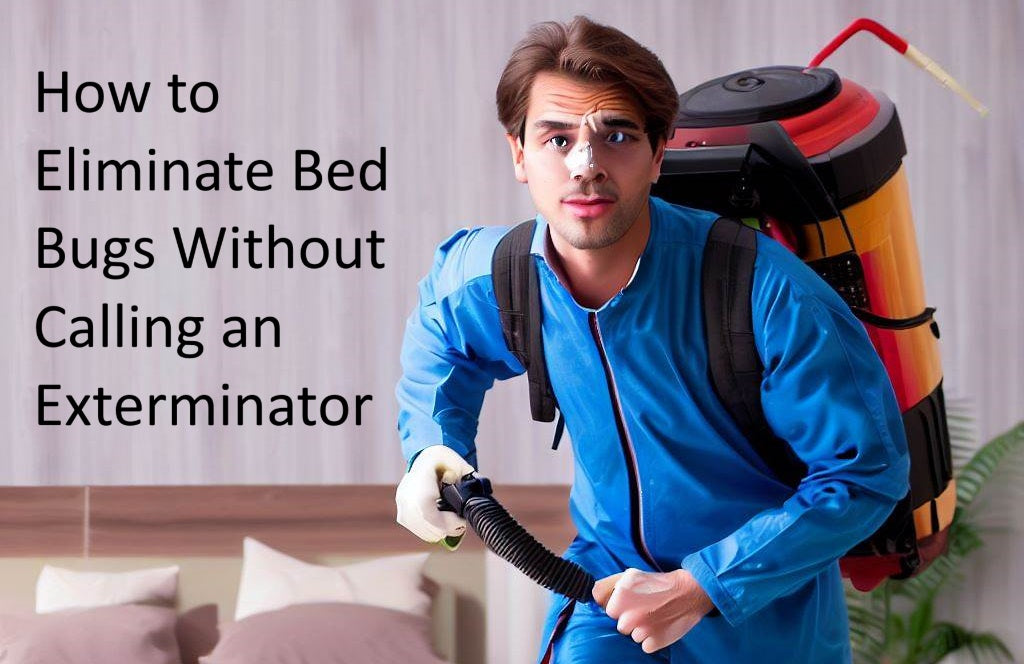
Dealing with a bed bug infestation can be a nightmare. These tiny pests are notorious for causing discomfort and distress, leaving many homeowners wondering how to tackle the issue without the cost of hiring an exterminator. In this guide, we'll explore some effective methods and bed bug killers that you can use to combat the problem on your own, saving you both time and money.
Identify the Problem
The first step in addressing a bed bug infestation is to confirm its presence. Bed bugs are small, reddish-brown insects that feed on blood, typically during the night. Look for signs such as reddish-brown stains on your bedding, tiny eggshells, and small bites on your skin. Once you've confirmed the infestation, it's time to take action.
Deep Cleaning and Clutter Removal
Bed bugs often hide in cracks, crevices, and cluttered areas. Start by decluttering your living space, as this will eliminate potential hiding spots. Vacuum your mattress, carpets, and furniture thoroughly, paying extra attention to seams and edges. Use a brush attachment to dislodge any eggs or bugs.
Launder and Heat-Treat Fabrics
Wash your bedding, linens, and clothing in hot water. High temperatures can effectively kill bed bugs and their eggs. Be sure to dry these items on high heat settings as well. Items that can't be laundered can be placed in a hot dryer for at least 30 minutes.
Encase Your Mattress and Furniture
Invest in bed bug-proof mattress and pillow encasements. These covers create a barrier that prevents bed bugs from infesting or escaping from your mattress and pillows. Encasing your furniture can also help trap any lingering bugs, making them easier to manage.
Natural Bed Bug Killers
Several natural remedies can be effective bed bug killers. These include:
a. Diatomaceous Earth: This natural powder works by dehydrating bed bugs, causing them to die. Sprinkle diatomaceous earth around infested areas, and leave it for a few days before vacuuming it up.
b. Essential Oils: Certain essential oils like lavender, tea tree, and eucalyptus have insect-repellent properties. Mix a few drops with water and spray around infested areas to deter and kill bed bugs.
c. Steam Treatment: Using a steam cleaner on mattresses, furniture, and cracks can kill bed bugs by exposing them to high temperatures.
Chemical Bed Bug Killers
If natural remedies don't yield the desired results, consider using chemical bed bug killers. When using these products, it's crucial to follow instructions carefully and take safety precautions. Some effective options include:
a. Pyrethroid-Based Sprays: These insecticides target bed bugs directly and can be sprayed on infested areas.
b. Insecticidal Dust: Applied in cracks and crevices, these dusts have a long-lasting effect and can help eliminate bed bugs over time.
Consistency and Follow-Up
Regardless of the methods you choose, consistency is key. Bed bug eradication may take several weeks, and it's essential to continue treatments and monitoring even after you've seen improvements. Bed bugs are resilient, so staying vigilant is crucial.
Conclusion
While a bed bug infestation can be challenging to deal with, there are effective ways to eliminate these pests without necessarily calling in an exterminator. By identifying the problem, deep cleaning, using natural and chemical bed bug killers, and maintaining a consistent approach, you can regain control of your home and enjoy a peaceful night's sleep once again. Remember, patience and persistence are your allies in this battle against bed bugs.



